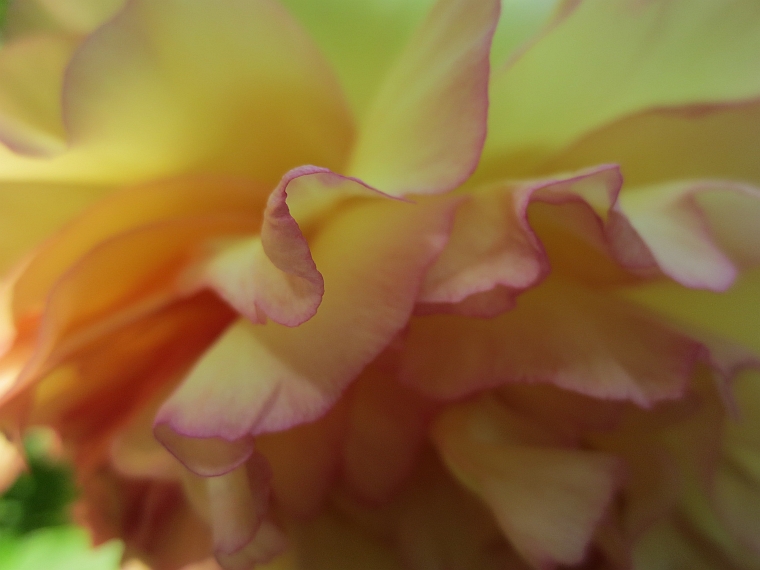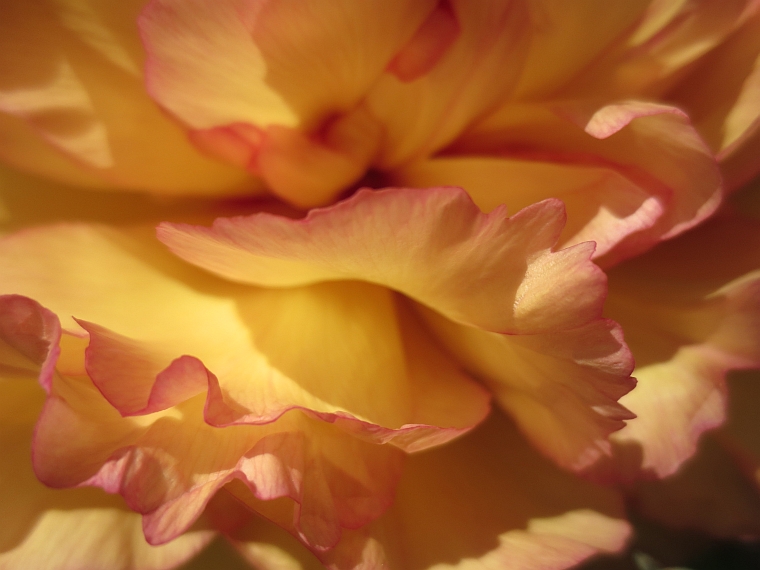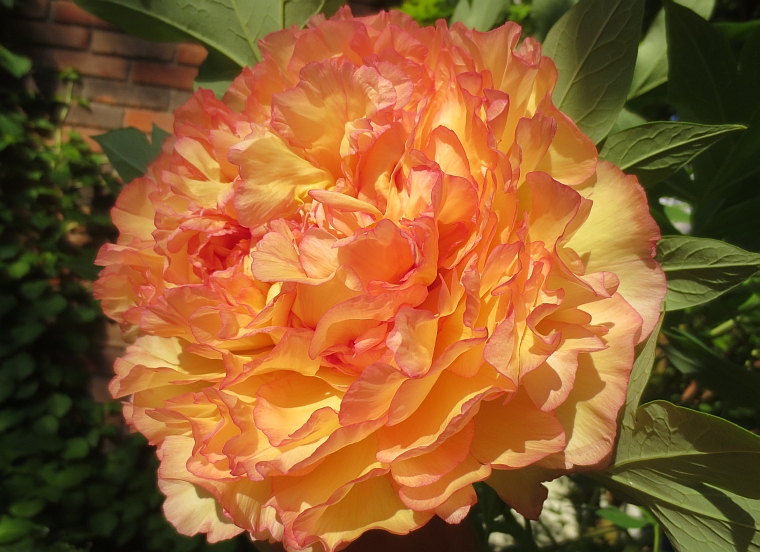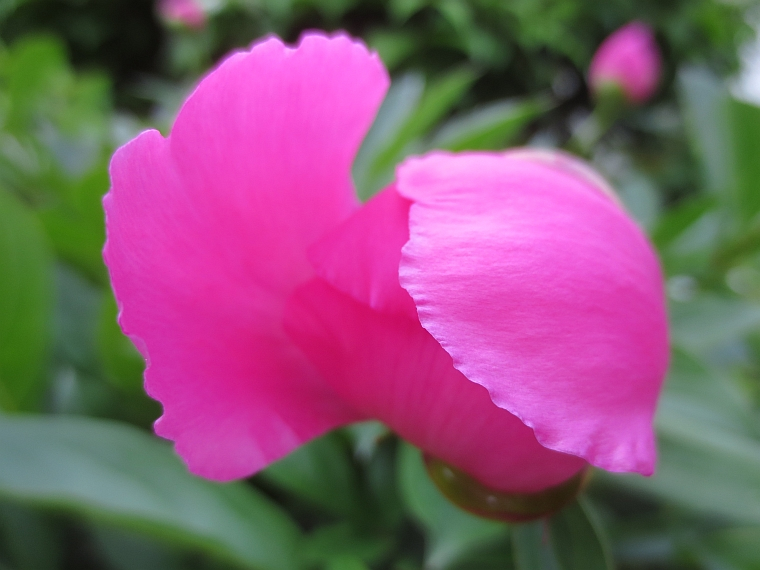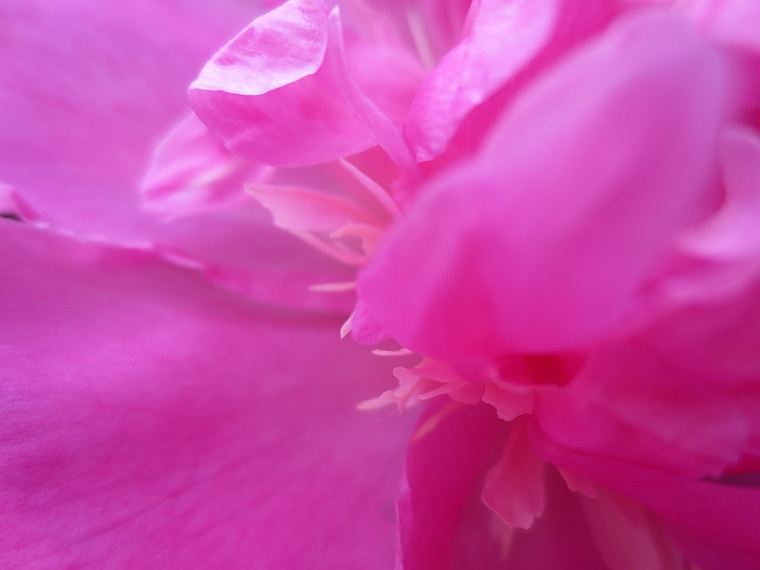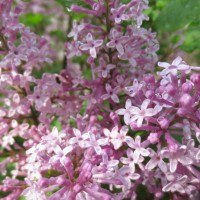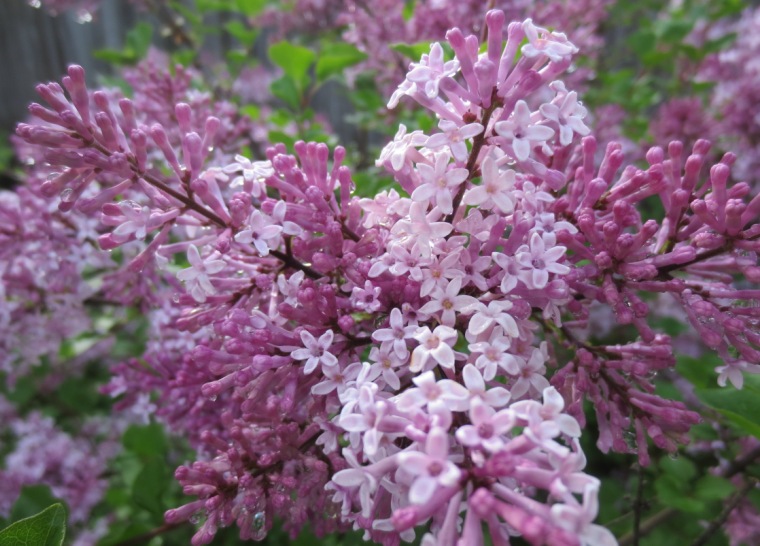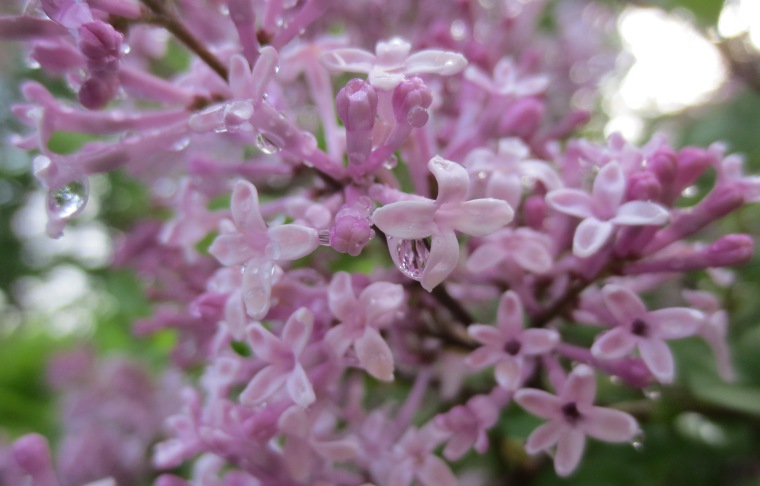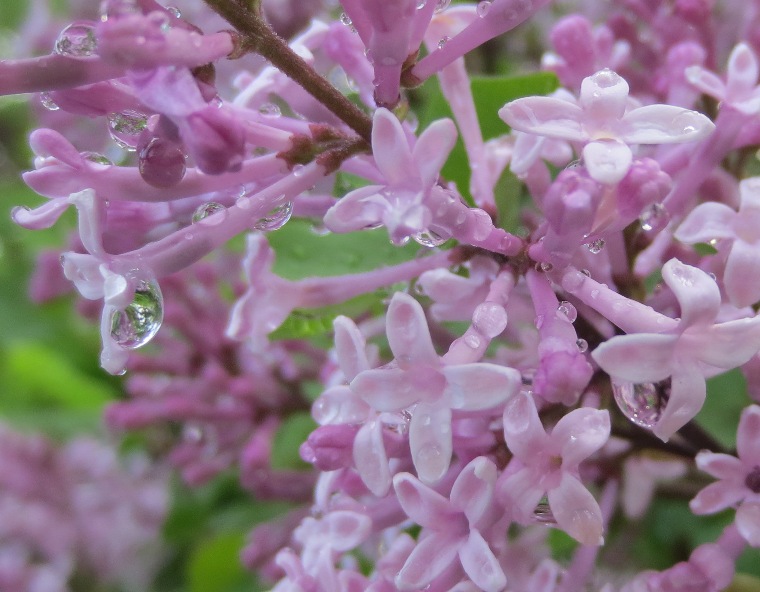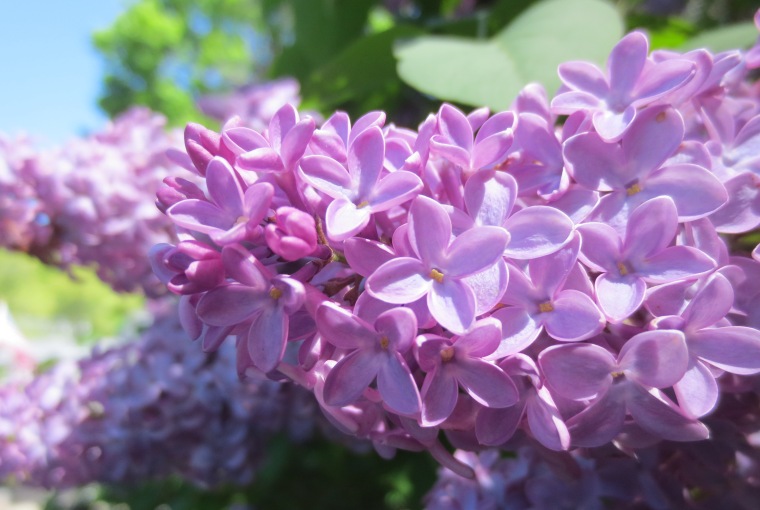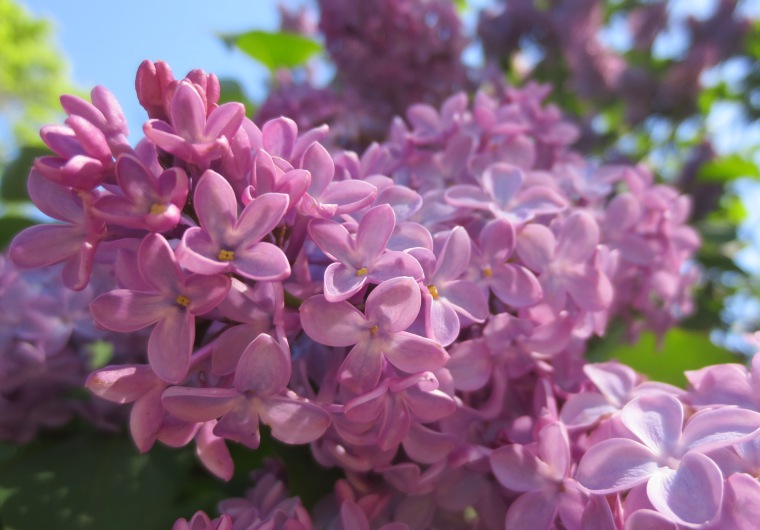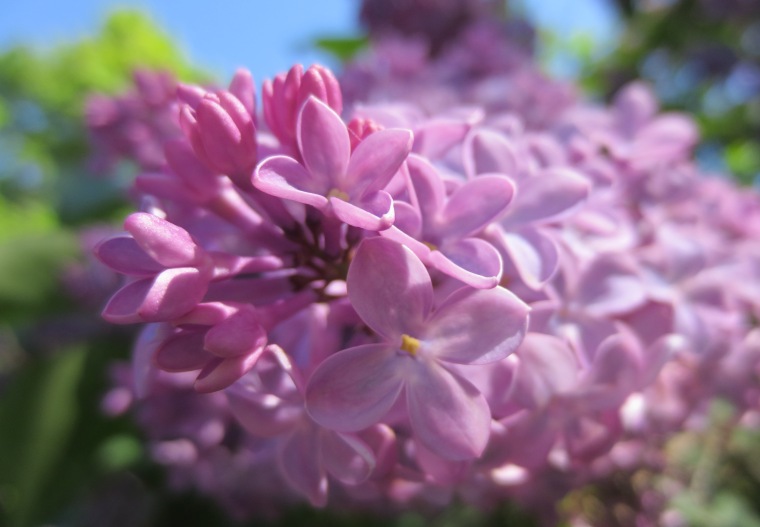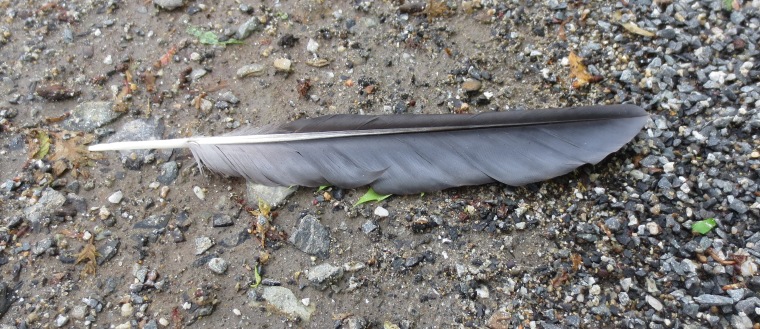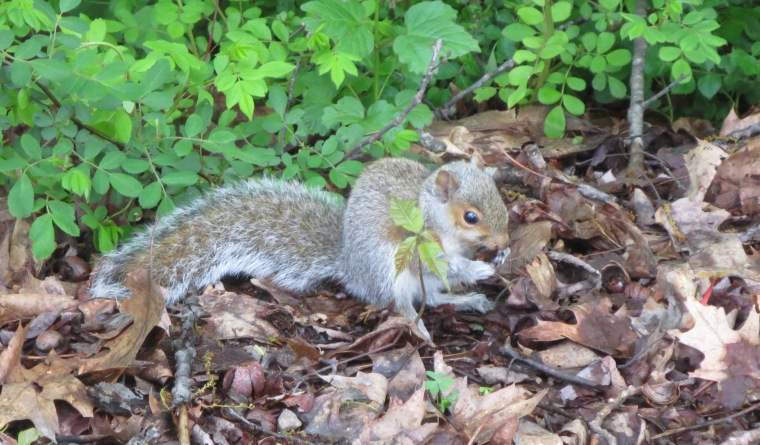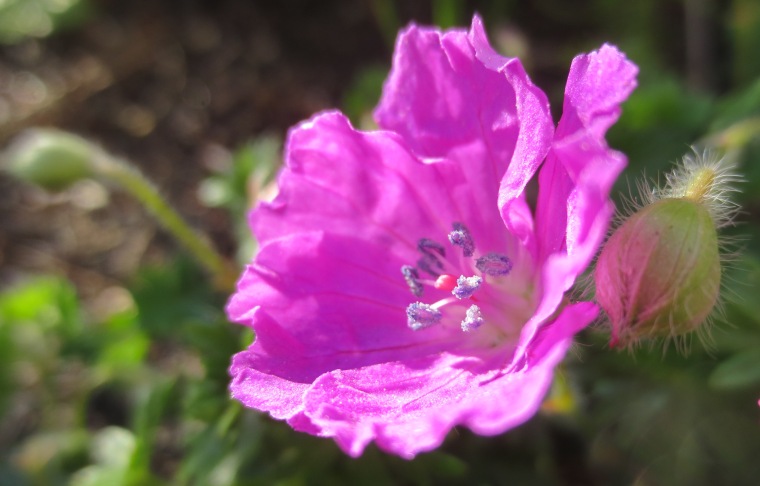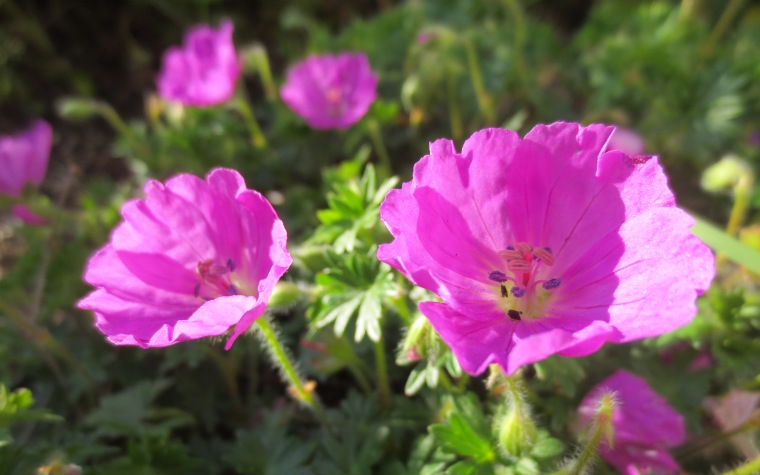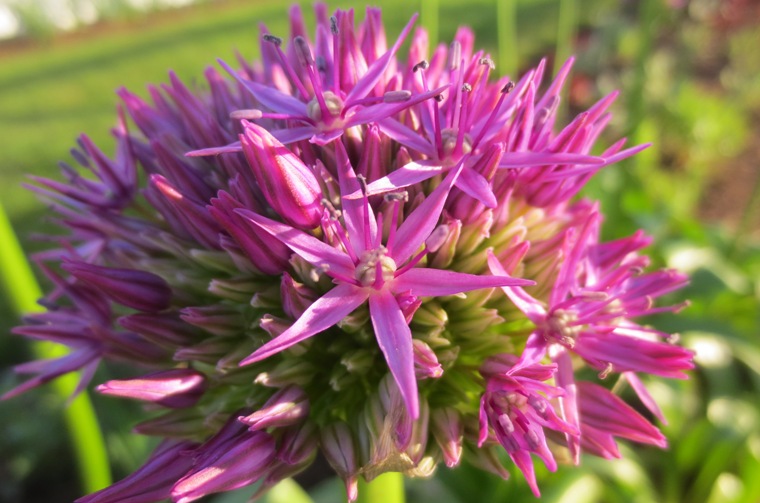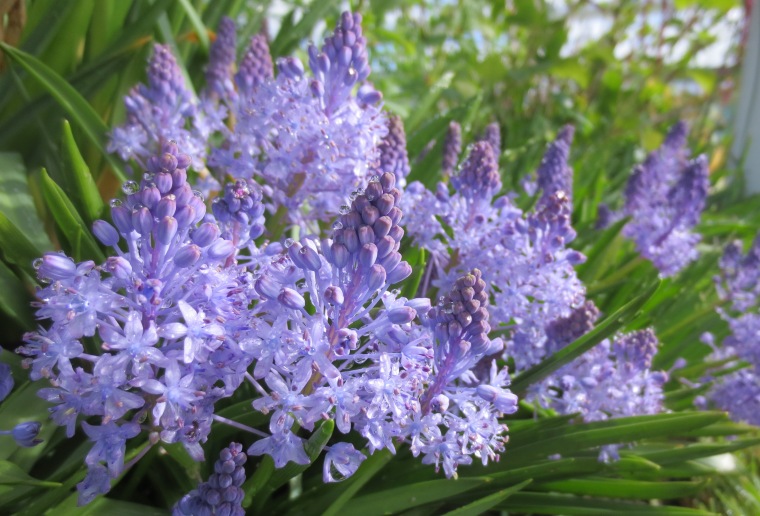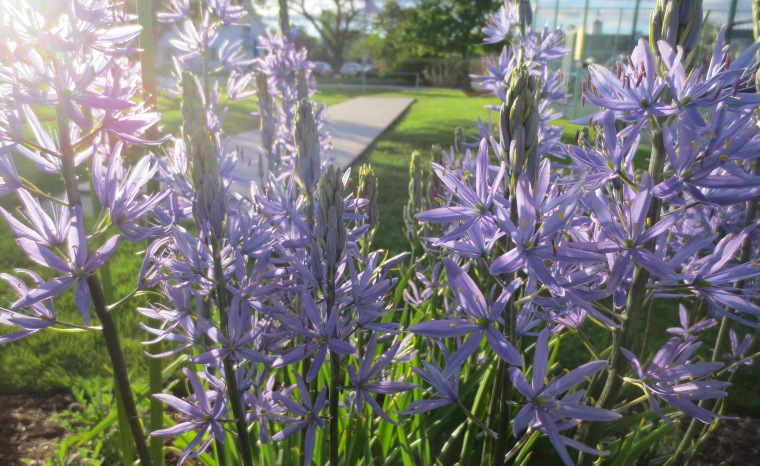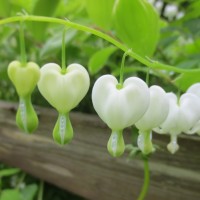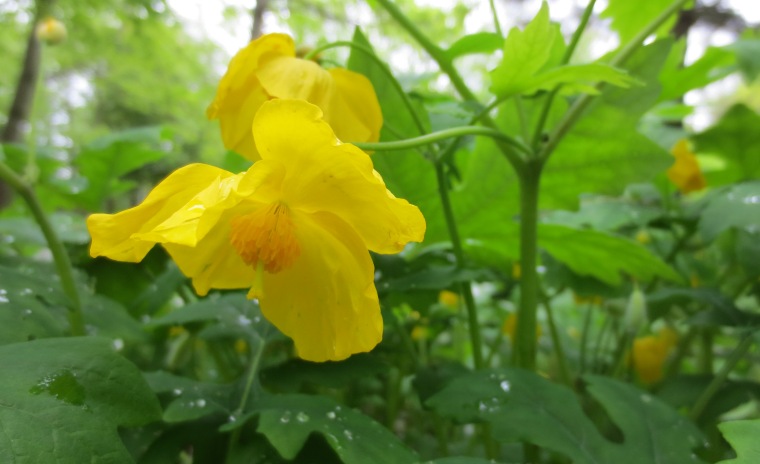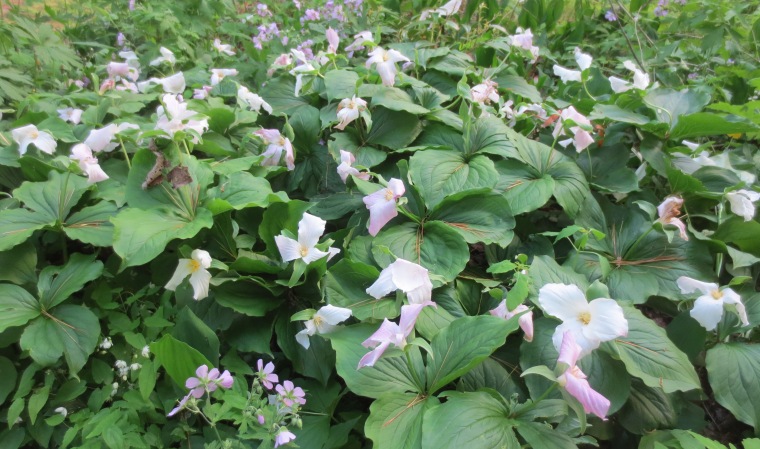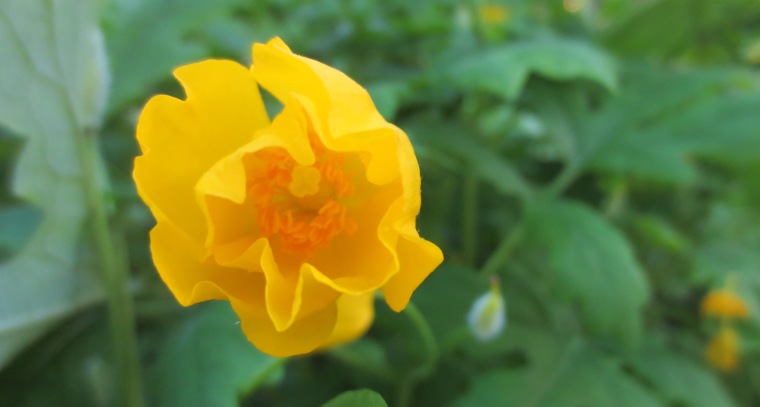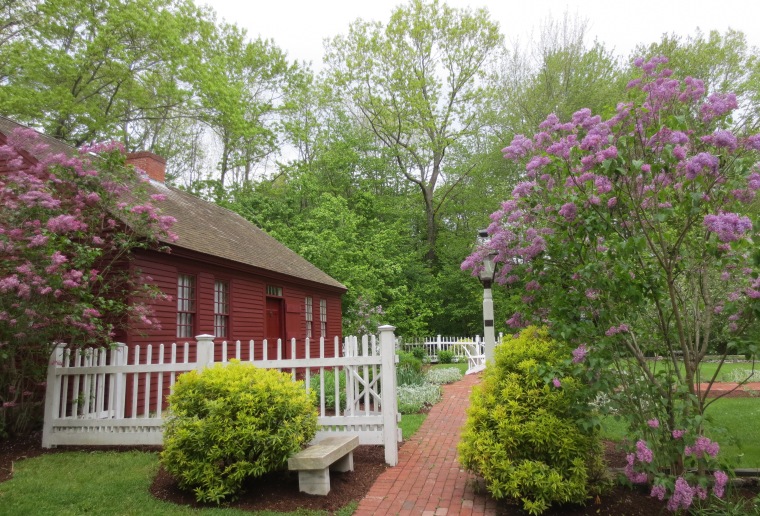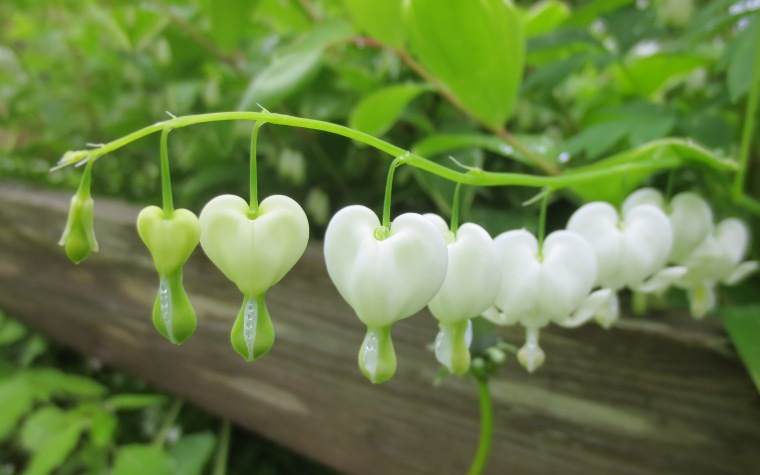One of the more graceful plants in the garden right now is this peach-tinted tree peony. Its blooms are huge – dinner-plate-dahlia-sized when they reach their full potential – and their journey is remarkable. It begins in the tight swelling of its almost silvery bud. The bud gets larger and larger, eventually (and this is the plant’s one major drawback) getting too top-heavy to stand up straight, drooping and nodding and dangling its heavy load at the end of the branch. By the time it starts to open, it is usually facing the ground, and hanging well below the finely-cut foliage. For this reason, I often end up cutting the stems and bringing them inside. This is when the magic begins, and it’s fascinating to watch up close.
It opens the size of an average peony, staking its salient claim by way of its unique fragrance. This isn’t the sweet scent of the old-fashioned peony – this is one spicy electric jolt, with a heady zing and a zesty tang. It’s heavily weighted with a strong tea base, but interspersed with lighter citrus notes, themselves dappled with pepper, that lift it into another realm. While the distinctive cologne is enough to set it apart from the pack, the show has only just begun. The next part is simply miraculous.
As mentioned, upon first opening, the bud and bloom are the size of a regular peony. Yet were you to lift it, you would feel the weight and density of a tightly coiled compression of flower power, that, once the sun comes out, and the cycles of a couple of days pass, grows and grows and grows. It doesn’t just open, it actually increases in volume, spilling out of whatever vase you may have inadequately supplied (one per vase is more than enough) and bursting up and out like a super slow-motion explosion. These are monster blossoms, becoming a bouquet unto themselves.
To highlight the show, the colors and shading get in on the action, the petals starting off a soft peach subdued by buttery yellow before gradually deepening into a salmon. The throats of the petal then begin to burn from the base, with hearts of ruby red tinged with fuchsia, like a more delicate version of a peach without the pit. As the bloom ages, the edges of each petal become just barely bordered by the thinnest line of blood red. It is a mesmerizing effect that reveals continually escalating layers of beauty, giddily assaulting all the senses in a display that both burns brightly and glows quietly.
Most tree peonies are grafted onto the more rigorous roots of their herbaceous cousins. While the herbaceous form should only be planted one or two inches beneath the soil line, tree peonies should go much deeper, as the hope is for the tree portion to develop its own roots along the way. Also, they should be allowed to grow into shrub form, so no heavy pruning back until you see what survived the winter. (For that reason those in the upper zones of their hardiness may wish to consider a bit of burlap protection where the winters get harsh.)


